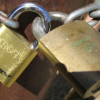Researchers: 307-digit key crack endangers 1024-bit RSA
A 307-digit encryption key has been broken down into primes and 1024-bit RSA keys are next, according to encryption researchers. Researchers from the University of Lausanne, the University of Bonn, and NTT DoCoMo have broken a new record in discovering the prime factors of a "special" 307-digit number this month, which took 11 months and roughly 100 years of computer time. The number was cracked using the special number field sieve method developed by cryptology professor Arjen Lenstra in the 1980s.
The 307-digit number itself was not an RSA key—the number was 21039-1, and RSA keys are typically generated by multiplying together two very large prime numbers, each at around 150-digits apiece. But the project shows that given enough time and computer power, the 1024-bit encryption keys used on many e-commerce sites could also be cracked in the not-so-distant future.









































































